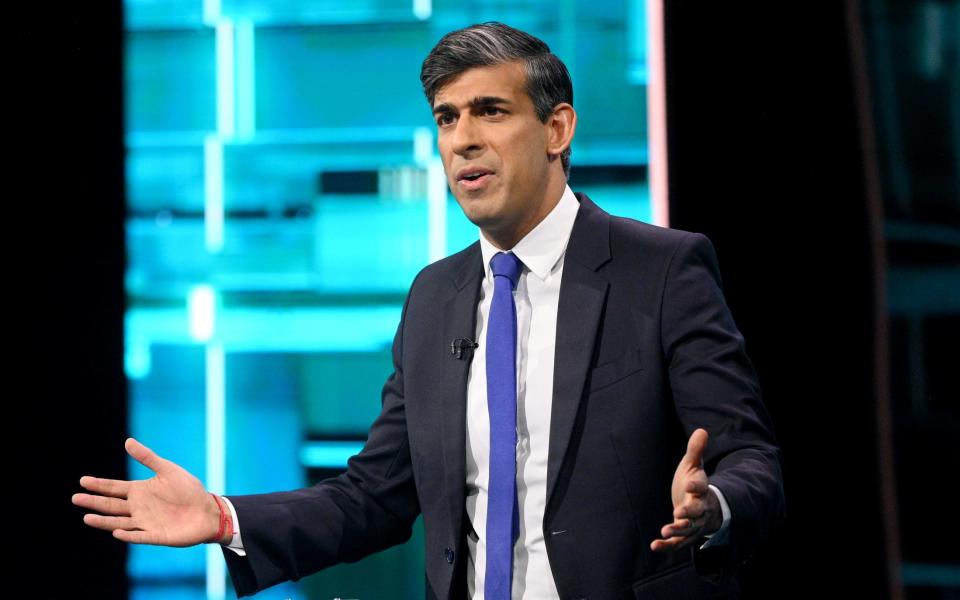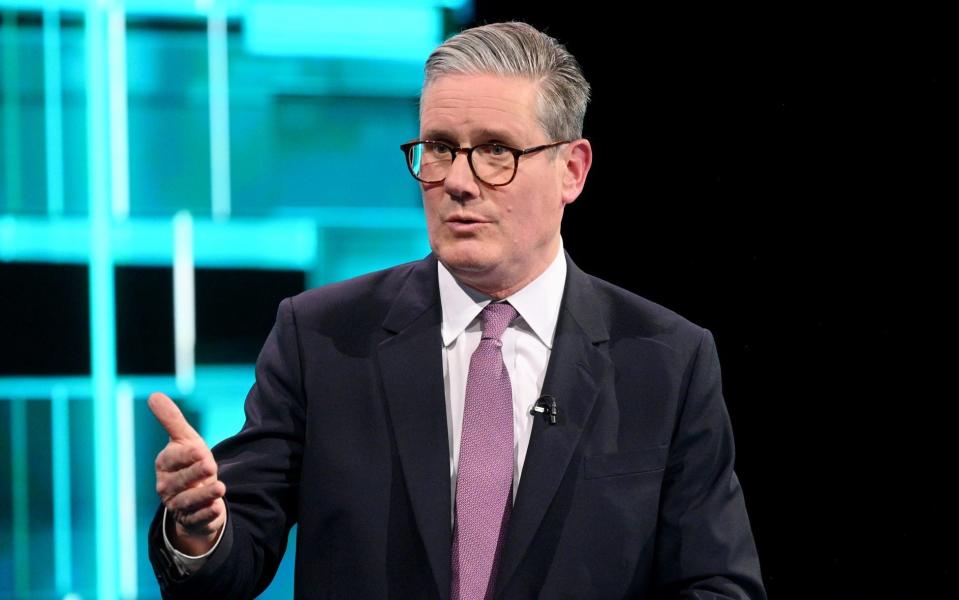Sunak criticised by statistics watchdog for £2,000 Labour tax claim

Rishi Sunak has been criticised by Britain’s statistics watchdog amid a bitter row over his claim that Labour will impose a £2,000 tax rise on every working family.
The Office for Statistics Regulation (OSR) said the public had “no way of knowing” the truth about Mr Sunak’s claim and how it was produced.
Mr Sunak claimed that Labour are planning to increase taxes on families by £2,000 repeatedly during the first televised debate between the Labour and Tory party leaders.
Sir Keir Starmer accused Mr Sunak of lying and breaking the ministerial code.
The £2,000 figure was partly calculated by Treasury officials, who were guided by Tory special advisers setting the assumptions.

While the OSR said the costing of opposition policies during election periods had been a “long-standing practice”, it suggested that Mr Sunak’s figure had been inflated by the Tories decision to account for tax rise over several years, instead of the usual single-year convention.
A more accurate figure would be a £500 a year increase in taxes, the OSR suggested.
In a statement on Thursday, the OSR said: “Without reading the full Conservative Party costing document, someone hearing the claim would have no way of knowing that this is an estimate summed together over four years. We [have previously] warned against this practice.”
While the watchdog said it was not its job to comment on the accuracy of the claim, it highlighted a letter sent to Labour by Treasury permanent secretary James Bowler, who said Tory claims about the Opposition’s tax and spending plans “should not be presented as having been produced by the Civil Service”.
Sir Robert Chote, the head of the UK Statistics Authority that oversees the OSR, said politicians should be banned from using the Treasury to cost opposition policies.

While both Labour and the Tories have done this since the 1950s, Sir Robert described it as a “bad precedent” that should not continue.
He added that Mr Sunak’s claim did not pass the test of “intelligent transparency”, telling the BBC: “If you’re going to make high profile, numerical claims about things then it’s a good idea to define clearly what it is you are talking about and what you are trying to measure.”
Stressing that it was his personal opinion, Sir Robert added: “This was a bad precedent when it started and we’d be much better off without it because it confuses the picture.
“It puts the Treasury in a very difficult position because their officials are held responsible for numbers that are partly shaped by political advisers.”
The OSR separately said it was closing an investigation into comments made by the chief economist of the Office for National Statistics (ONS) in relation to economic growth.
Grant Fitzner said 0.6pc GDP expansion in the first three months of 2024 could be described as “gangbusters”, a phrase reported in the media and subsequently used by the Prime Minister as evidence that his economic plan was working.
Mr Fitzner had said: “To paraphrase the former Australian Prime Minister Paul Keating, you could say the economy is going gangbusters.”
It is understood the OSR received a complaint by a member of the public following the remarks, which triggered the initial investigation. It subsequently closed the inquiry following a brief investigation.
A spokesman for the ONS described Mr Fitzner’s use of the phrase as “a passing reference” when discussing the economy.
The spokesman said: “The reference was made – paraphrasing a remark by a former Australian Prime Minister – as Q1 growth had come in stronger than commentators expected, with broad-based growth across services and manufacturing industries, and with quarterly growth at its strongest pace since the pandemic.
“It was certainly not intended as a comment about the overall state of the economy.”

 Yahoo Finance
Yahoo Finance 